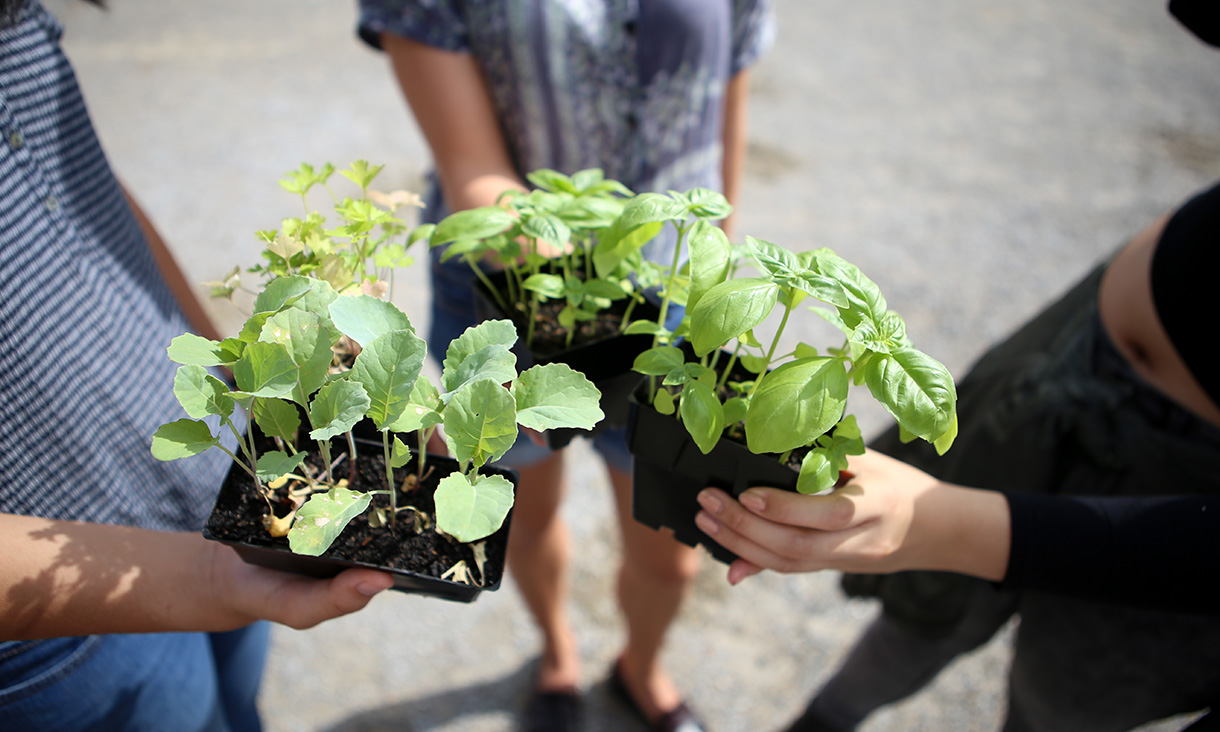
RMIT is passionate about being a sustainability leader, not just in the sector but Australia-wide. Here we highlight a few of the sustainability initiatives we’ve put in place to drive change through collaboration and genuine action.

Our buildings
RMIT incorporates sustainable design principles into all new build and refurbishment projects.
The New Academic Street Project, which achieved a 5-star Green Star As-built rating, utilises both natural and mechanical ventilation schemes so that more favourable outdoor weather conditions can permeate the building.
Many of the student learning spaces were designed as ‘mixed mode’, featuring balconies and a network of new laneways. The laneways themselves are all-weather spaces, fully naturally ventilated, and lend the project a characteristic Melbourne flavour.
The interiors were developed through minimal interventions into the existing buildings structural fabric, and with sustainable materials used throughout, including paints, carpets, furniture and joinery.
The University undertook ‘adaptive re-use,’ stripping back the lower levels of the existing concrete-encased steel buildings, with floor plates repurposed to meet the needs of the RMIT community.
Large, dark lecture theatres were repurposed, creating light and comfortable tiered student study spaces. The façades have now been opened-up to create new outdoor spaces.
The four-storey Garden Building and Terrace was integrated into the campus, creating additional social spaces for staff and students. Built using lower impact sustainable cross- laminate timber, the building is characterised by the widespread use of greenery and open garden space to enhance the urban environment.
Other sustainability initiatives include thermal heat recovery, stormwater management and water sensitive urban design.
Our commitment to climate change action
RMIT is working towards a goal to be carbon neutral by 2030, continuing to implement energy efficiency across our portfolio and pursue appropriate emissions reduction opportunities.
A $128M Energy Efficiency Program across all three Victorian campuses achieved a 45% emissions reduction on campus in 2018 compared to a 2007 baseline.
This has been achieved through a range of improvements including generating our own electricity on campus (co-generation and tri-generation), LED lighting upgrades, boiler replacements, chiller replacements and HVAC controls improvements.
We have recently installed over 1,500 solar panels in the Carlton precinct, bringing our on-site renewable generation to 600kW.






